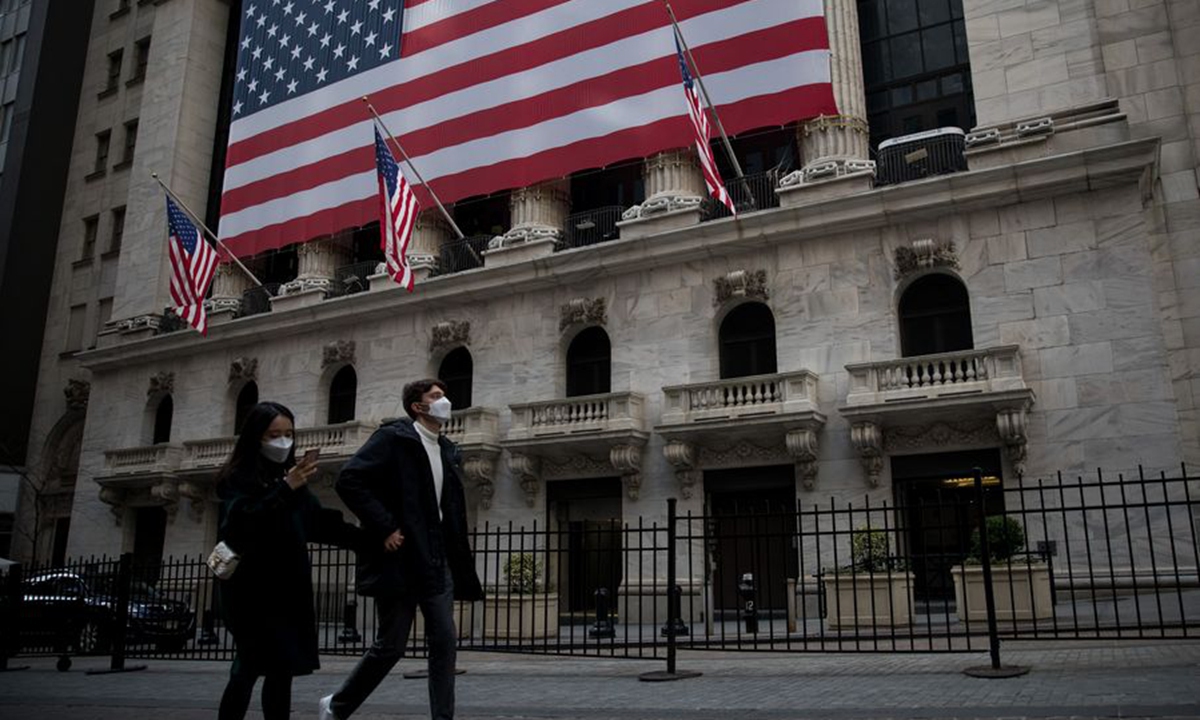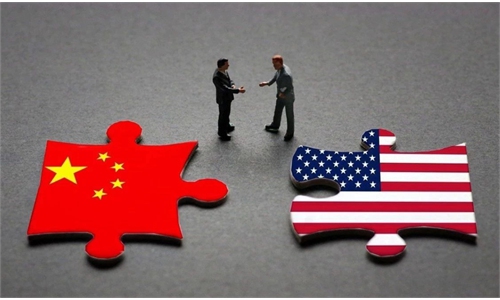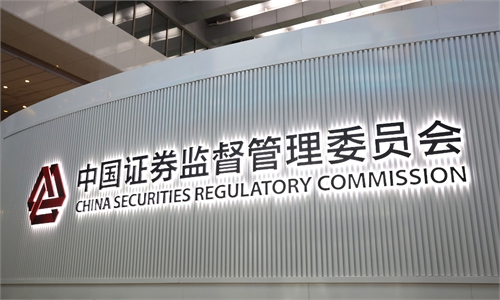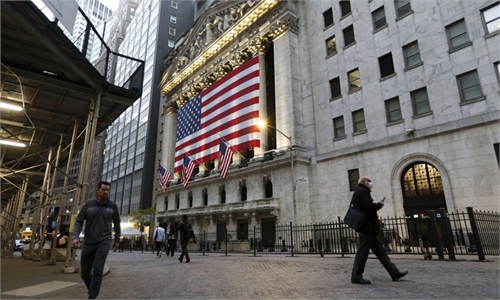
Pedestrians wearing face masks walk past the New York Stock Exchange in New York, the US. Photo: Xinhua
At a time when China and the US have already won hard-earned results in bilateral auditing cooperation, it is unwise for the US to signal that more political pressure may be coming for US-listed Chinese companies.US Congress passed legislation that will speed up the timeline for delisting US-listed Chinese companies that fail to provide audit work papers for inspection to two years from three, Bloomberg reported over the weekend.
While Chinese and US regulatory officials reached a historic agreement on audit supervision this year, the US ratcheting up pressure on Chinese companies sends a discouraging signal, which is nothing more than to show that squeezing Chinese companies' space for legitimate operation in the US will be an inevitable trend under the political atmosphere in Washington.
The move by Congress came just a few days after the market felt the waters became safe again to invest in the roughly 200 Chinese companies that trade on US exchanges as the delisting countdown clock for them has been reset for another three years. The Public Company Accounting Oversight Board (PCAOB) said on December 15 that it gained full access to audit documents from Chinese companies for the first time, which apparently eased the tension and the risk that Chinese companies could be kicked off US exchanges.
Despite the positive development that has eased the dispute over auditing oversight of US-listed Chinese companies, it should be noted that the PCAOB inspection and investigation remains an ongoing task, and whether the result will be satisfying in the future will depend on the cooperative willingness of both sides. If the US continues to impose too much political weigh on US-listed Chinese companies, it would be unfair for both investors and Chinese companies because the market would be unable to properly reflect their valuation amid political interference.
Over the past few years, due to growing anti-China political sentiment, Washington has launched various geopolitical containment and trade suppression measures targeting China. It won't be in anyone's interest if US-listed Chinese stocks become an important symbol of Washington's China strategy.
There is no denying that from the perspective of the development of those Chinese companies that trade on US exchanges, a US listing is beneficial for them, also benefiting the Chinese capital market in the long run. This is also the reason why some anti-China voices have been calling for a clampdown on fundraising by Chinese companies in the US.
But a US listing is not a favor granted to Chinese firms by local regulators. If anything, Chinese companies seeking to list in the US is also beneficial to the US financial markets. This is because the Chinese economy, with sound fundamentals, has been one of the world's fastest growing economies over the past decades and is expected to rebound from the Omicron epidemic, becoming one of the few bright spots for global economy next year. Therefore, the overseas listing of Chinese companies means opportunities to share China's development dividends, which is an irresistible attraction for global investors.
Fundamentally speaking, dealing with the conflict over audit inspections is a test of Washington's real attitude toward China-US relations, which apparently is still plagued by US-created uncertainty.
In contrast, China has demonstrated its certainty through audit inspection talks that its attitude toward encouraging companies to list overseas, opening up to the outside world, and pushing Chinese companies to go global are sincere and consistent. None of China's policies will change under US pressure.



